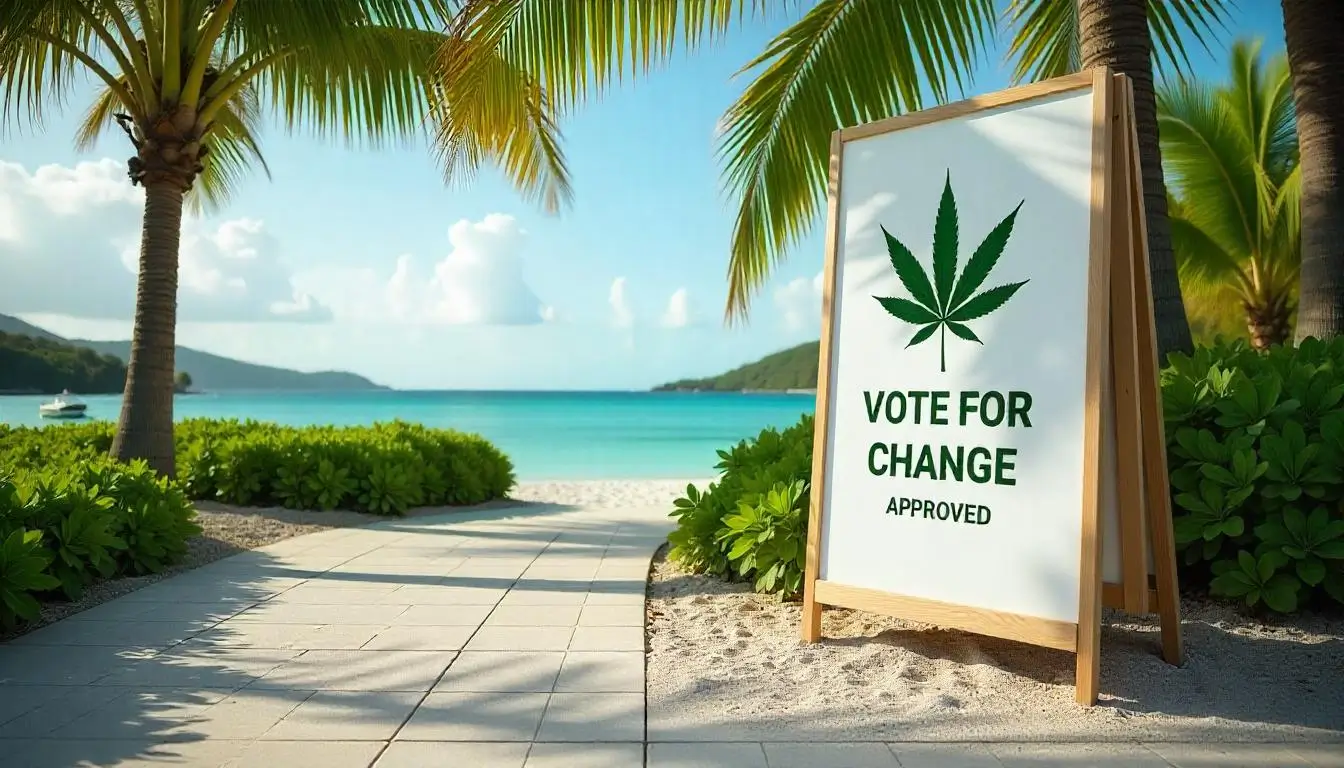In a significant development for drug policy in the Caribbean, voters in the Cayman Islands have expressed strong support for decriminalizing the possession and personal use of small amounts of cannabis. The outcome stems from a non-binding referendum held Wednesday, which saw a 60 percent majority favor the proposed policy shift.
Though the referendum does not automatically enact legal change, it is expected to influence upcoming discussions among lawmakers in the self-governing British territory. If adopted, the proposal would eliminate criminal penalties for low-level marijuana possession and use, though the drug would still remain technically illegal. Sales and large-scale distribution would continue to be prohibited.
No Clear Guidelines Yet on “Small Amounts”
Voters were asked whether they support “the decriminalization of the consumption and possession of small amounts of cannabis,” with a simple majority required for passage. Preliminary results, released Wednesday evening, confirmed public backing for the measure, excluding invalid or spoiled ballots.
The precise contours of any resulting legislation remain uncertain. While a government information portal has floated a possible threshold, such as possession under 10 grams, it stopped short of committing to a specific quantity. Similarly, while criminal charges might be dropped, alternative penalties such as civil fines or mandatory education programs are reportedly under consideration.
Decriminalization vs. Legalization
Officials have emphasized that decriminalization differs from full legalization. The former removes criminal penalties for certain offenses but does not establish a legal market, while the latter includes regulated production, sale, and use.
Supporters of the referendum, including advocacy groups and public health professionals, argue that current laws disproportionately harm residents by saddling them with criminal records for non-violent offenses. These records can create lasting barriers to employment, education, travel, and immigration.
Medical Experts Call for Reform
Dr. Marc Lockhart, a psychiatrist and former chair of the Cayman Islands Mental Health Commission, has been a vocal advocate for reform. He acknowledged that while medical training once emphasized the dangers of cannabis, his clinical experience has led him to support decriminalization, especially for patients managing chronic pain, multiple sclerosis, and seizures.
A Regional Trend Toward Reform
The Cayman Islands legalized medical marijuana in 2017, joining a growing list of Caribbean jurisdictions re-evaluating cannabis laws. In 2018, the leadership of 19 Caribbean countries collectively committed to reviewing the region’s marijuana policies, citing both human rights concerns and the economic potential of legalization.
Cannabis and International Travel Risks
Meanwhile, international travelers are reminded that cannabis, medical or otherwise, remains tightly regulated across many borders. Updated guidance from the U.S. Centers for Disease Control and Prevention (CDC) warns that possession of cannabis or CBD products can still result in legal complications abroad, even in jurisdictions where use is otherwise permitted.
One high-profile example came last year when actress Rachel Sennott revealed she was detained in the Cayman Islands for carrying CBD, underscoring the need for travelers to stay informed about local drug laws.





